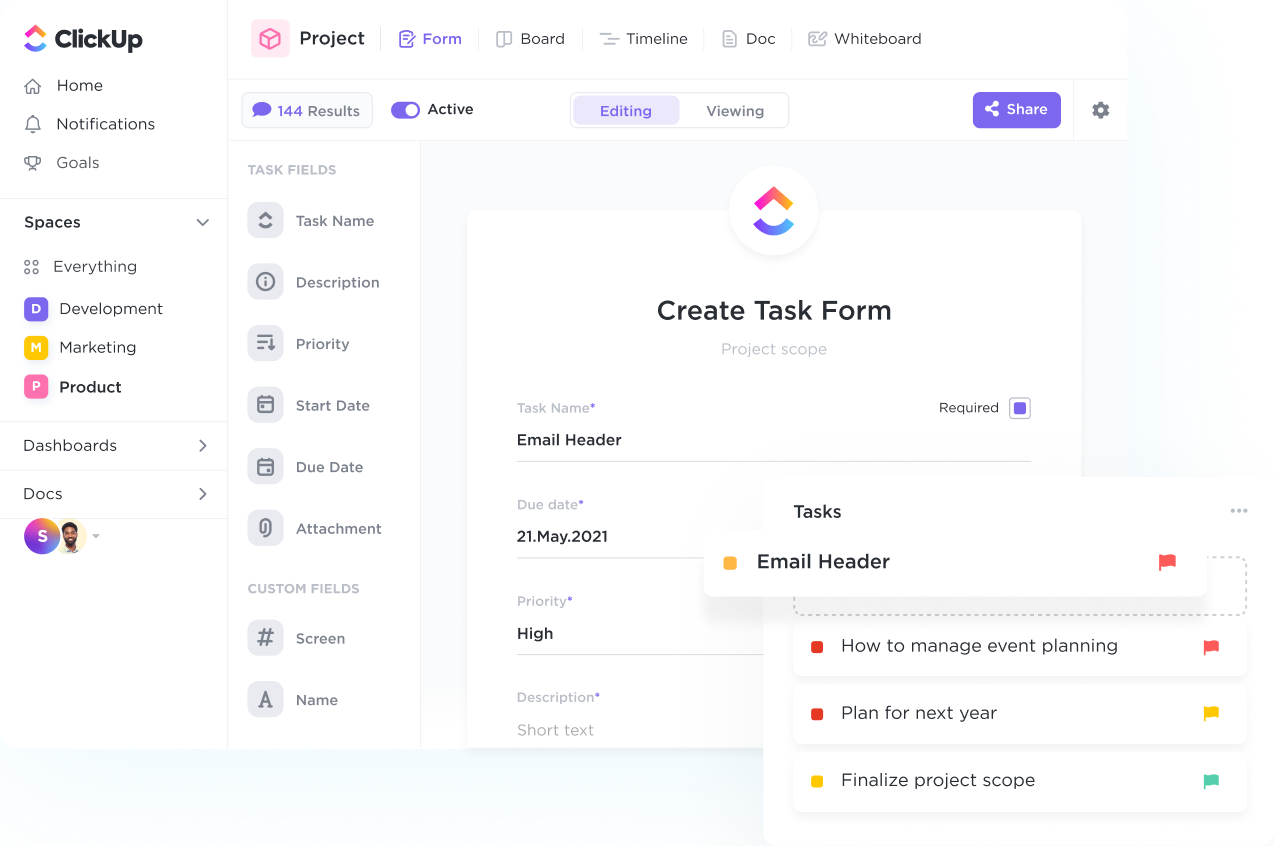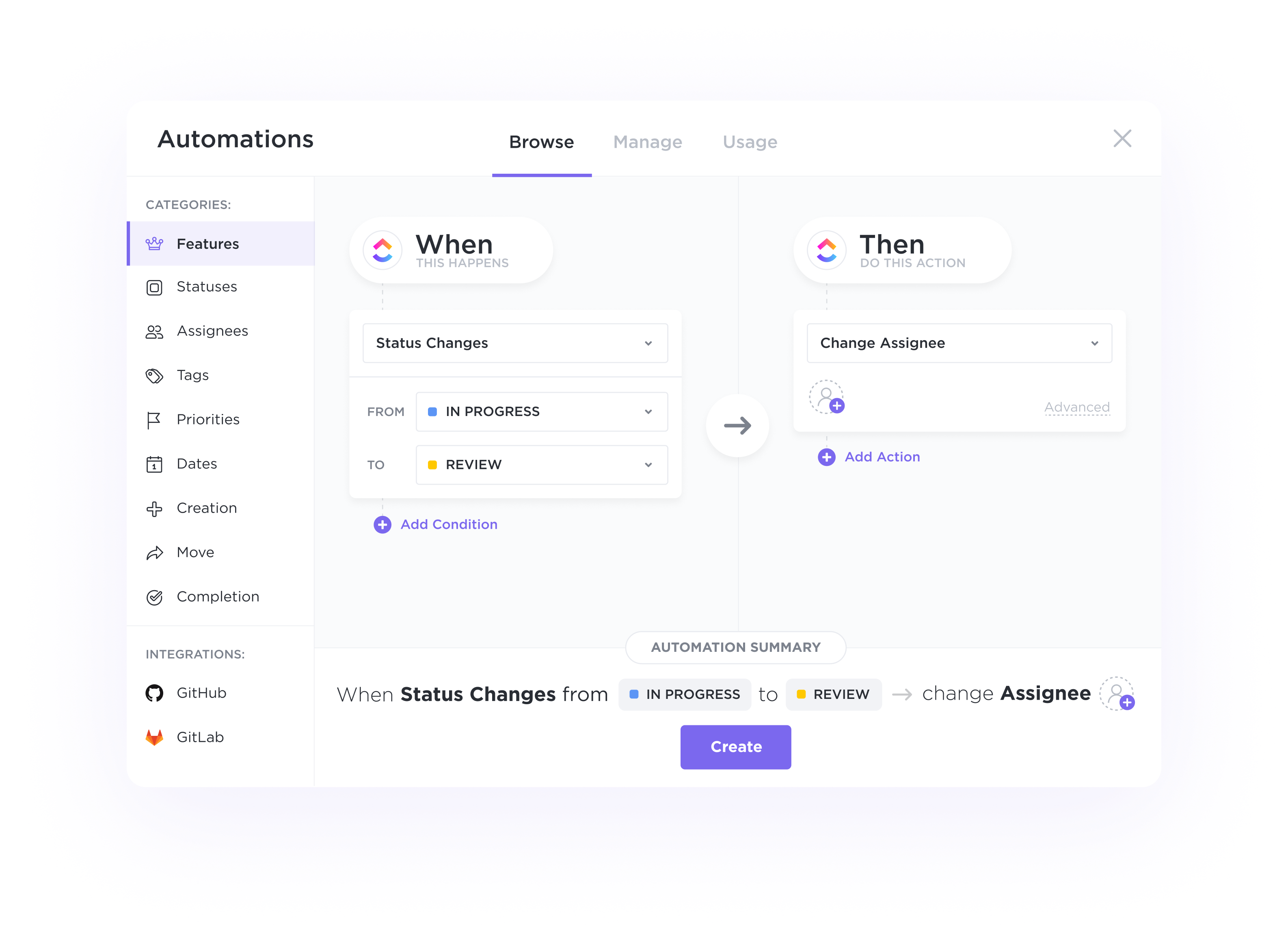Onboard customers and collect info in a snap.
Streamline your intake process, organize response data, and automatically create tasks with custom branded Forms powered by conditional logic.

Supercharge your vendor relationships with a tailor-made CRM system powered by ClickUp. Streamline communication, track interactions, and boost productivity seamlessly. Elevate your vendor management game with ClickUp's intuitive platform.
Free forever.
No credit card.
Trusted by the world’s leading businesses
Streamline your intake process, organize response data, and automatically create tasks with custom branded Forms powered by conditional logic.

Automatically assign tasks for each stage of your pipeline, trigger status updates based on activity, and switch priorities to alert your team on where to focus next.

Key features and functionalities of CRM software can benefit vendors by providing a centralized database for customer information, automating sales processes, tracking interactions and touchpoints, generating insights through analytics, facilitating lead management, and enabling personalized communication for improved customer relationships and sales effectiveness.
CRM software helps vendors streamline lead generation and conversion processes by organizing and tracking leads, automating follow-ups, and providing valuable insights for targeted marketing and sales efforts. This leads to improved lead nurturing, faster conversions, and increased sales and revenue.
CRM software offers various integrations and plugins to automate inventory management and order fulfillment, enhancing efficiency and accuracy in tracking inventory levels, managing orders, and streamlining fulfillment processes.